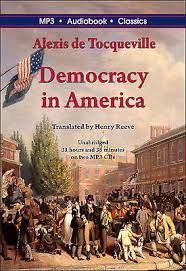The Wisdom and Continuing Relevance of Peter Drucker
PUBLISHED:
What is wisdom? The dictionary says it is knowledge of what is true and right coupled with just judgment as to action. Jennifer Rowley reports that it is the “ability to act critically or practically in a given situation. It is based on ethical judgment related to an individual's belief system.” (Rowley 2006 p. 255). So, wisdom seems to be about deciding on or doing an action based on moral or ethical belief in helping other people. This clearly describes Peter Drucker and his often prescient ideas
For the 100th anniversary of Peter Drucker’s birth, Harvard Business Review dedicated its November 2009 magazine to Drucker. In one of the articles about Drucker by Rosabeth Moss Kanter (2009 p. 1), What Would Peter Say? Kanter posits that,
Heeding Peter Drucker's wisdom might have helped us avoid—and will help us solve numerous challenges, from restoring trust in business to tackling climate change. He issued early warnings about excessive executive pay, the auto industry’s failure to adapt and innovate, competitive threats from emerging markets, and the perils of neglecting nonprofit organizations and other agents of societal reform.
Meynhardt (2010) calls Drucker a towering figure in Twentieth Century management. He says no other writer has had such an impact. He is well-known to practitioners and scholars for his practical wisdom and common sense approach to management as a liberal art.
Drucker believed that there is no how-to solution for management practice and education. Doing more of “this” and less of “that” and vice versa is not how Drucker suggests managers do their work. Rather, Drucker relies more on morality and the virtue of practical wisdom to solve problems related to organizations. The virtue that Drucker talks about cannot be taught. It must be experienced and self-developed over time. A good example of this is Drucker’s Management by Objectives (MBO). Drucker does not give technical advice on how to initiate MBO. Rather he wisdomizes his moral convictions that integrating personal needs for autonomy with the quest of submitting one’s efforts to a higher principle (helping people) ensures performance by converting objective needs into personal goals. (Meynhardt, 2010).
Peter Drucker published thirty-eight articles in the Harvard Business Review (HBR) and seven times won the McKinsey Award presented annually to the author of the best article published during the previous year in HBR. No other person has won as many McKinsey awards as Drucker
The former editor-in-chief of Harvard Business Review, Thomas A. Stewart, quotes Peter Drucker; “The few of us who talked of management forty years ago were considered more or less deranged.” Stewart says that this was essentially correct. Harvard Business Review's very mission is to improve management practice. Stewart says this mission is inconceivable without Drucker’s work. Drucker’s work in management planted ideas that are as fruitful today as they ever were. Stewart posits that each year, managers discover extraordinary and immediate relevance in articles and books that were written before they were born or even before their parents were born.
Stewart (2016) tries to answer the questions: Why does Drucker’s work endure? and Why is Drucker still relevant?
First, was Drucker’s talent for asking the right questions. He had an instinct for being able to not let the urgent drive out the important, for seeing the trees, not just the forest. This allowed him to calmly ask pertinent questions that encouraged clients to find the proper course to take.
Secondly, Drucker was able to see whole organizations. Instead of focusing on small particular problems. Ducker had the ability to find the overarching problem as well. Stewart uses Drucker’s 1994 HBR article, The Theory of the Business to make this point. Many people were trying to analyze the problems of IBM and General Motors by looking for root causes and trying to fix the blame. Drucker, on the other hand, argued correctly that the theories and assumptions on which they had managed successfully for many years were outdated. This article is as relevant today as it was in 1994 because Drucker took the “big picture view.” And no one else has ever been so skillful at describing it.
Thirdly, starting in 1934, Drucker spent two years at General Motors with the legendary Alfred P. Sloan, immersed in the workings of the automaker and learning the business from within. This allowed him to talk with authority, but he has always stayed “street smart and wise.” This mentoring
helped give Drucker the gift of being able to reason inductively and deductively. He could infer a new principle or a theory from a set of data or being confronted with a particular problem; he could find the right principle to apply to solve it.
Drucker’s first article published in HBR, Management Must Manage, challenged managers to learn their profession not in terms of prerogatives but in terms of their responsibilities, to assume the burden of leadership rather than the mantle of privilege. Many in the management/leadership field probably found Drucker to be “deranged,” but in 2024, this is important advice for leader (Stewart 2006).
Just a few more of Drucker’s ideas that seemed well outside the mainstream when he proposed them but are standard practice today include: Managing Oneself, Privatization, Decentralization, Knowledge Workers, Management by Objectives, Charismatic Leadership Being Overrated, CEO Outsize Pay Packages, and Enthusiasm of the Work of the Salvation Army (Rees, 2014).
Clearly, Drucker remains relevant!
References:
Kanter, R. 2009. What would Peter say? Harvard Business Review. November, 2009.
Meynhardt, T. 2010. The practical wisdom of Peter Drucker: Roots in the Christian tradition. Journal of Management Development Vol. 29. No. 7/8.
Rees, M. 2014 The wisdom of Peter Drucker. Wall Street Journal. Dec. 12, 2014.
Rowley, J. 2006. Where is the knowledge that we have lost in knowledge? Journal of Documentation. Vol. 62, Iss. 2. 251-270.
Stewart, T. 2006. Classic Drucker. Editor Thomas A. Stewart. Harvard Business School Publishing Corporation.





